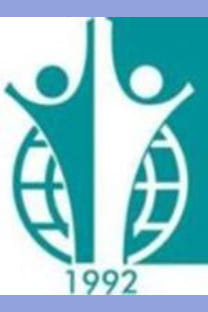Öğrenciyi Merkeze Almak: Turist Rehberliği Eğitiminde Uzman Mantosu Yaklaşımı
Uzman Mantosu Yaklaşımı, Drama, Turist Rehberliği Eğitimi, Turizm Eğitimi
TAKING THE STUDENT TO THE CENTER: THE MANTLE OF EXPERT IN TOURIST GUIDE EDUCATION
___
- Adıgüzel, Ö. (2006). Yaşantılara Dayalı Öğrenme, Yaratıcı Drama ve Süreçsel Drama İlişkileri. Yaratıcı Drama Dergisi, 1(1), 31-39.
- Adıgüzel, Ö. (2010). Eğitimde Yaratıcı Drama (1. Baskı). Ankara: Naturel Yayıncılık.
- Airey, D. (2013). Forty Years of Tourism Education and Research. Poznan University of Economics Review, 13(4), 11-19.
- Armstrong K. E. (2003). Applications of Role-Playing in Tourism Management Teaching: An Evaluation of a Learning Method. Journal of Hospitality, Leisure, Sport and Tourism Education, 2(1), 5-16.
- Bramwell, B. (1998). User Satisfaction and Product Development in Urban Tourism. Tourism Management, 19(1), 35-47.
- Brennan R. ve Pearce G. (2009). Educational Drama: A Tool for Promoting Marketing Education?. The International Journal of Management Education, 8(1), 1-9.
- Broderick A. ve Pearce G. (2001). Indoor Adventure Training: A Dramaturgical Approach to Management Development. Journal of Organizational Change Management, 14(3), 239-252.
- Caton K. (2014). Underdisciplinarity: Where are the Humanities in Tourism Education?. Journal of Hospitality, Leisure, Sport and Tourism Education, 15, 24-33.
- Creswell, J. W. (2014). Research Design: Qualitative, Quantitative and Mixed Methods Approaches (4th Edition). California: SAGE Publications.
- Davis, D. (2010). Gavin Bolton: Essential Writings. USA: Trentham Books.
- Eker N. ve Zengin, B. (2016). Turist Rehberliği Eğitiminin Değerlendirilmesi: Profesyonel Turist Rehberleri Üzerine Bir Uygulama. Eğitim ve Öğretim Araştırmaları Dergisi, 5(4), 65-74.
- Heathcote, D. (1991). Collected Writings on Education and Drama, Liz Johnson and Cecily O’Neill (eds.). Illinois: Northwestern University Press.
- Heathcote, D. ve Bolton, G. (1995). Drama for Learning: Dorothy Heathcote’s Mantle of the Expert Approach to Education, Cecily O’Neill (ed.). New Hampshire: Heinemann.
- Inui Y., Wheeler D. ve Lankford S. (2006). Rethinking Tourism Education? What Should Schools Teach?. Journal of Hospitality, Leisure, Sport and Tourism Education, 5(2), 25-35.
- McCaslin, N. (2006). Creative Drama in the Classroom and Beyond (8th Edition). Boston: Pearson.
- O’Neil, C. ve Lambert A. (1991). Drama Structures: A Practical Handbook for Teachers. Portsmouth: Heinemann.
- O’Toole, J., Stinson, M. ve Moore, T. (2009). Drama and Curriculum: A Giant at the Door. London: Springer.
- Özen, Z. ve Adıgüzel, Ö. (2017). Dorothy Heathcote’un Yaratıcı Drama Yaklaşımları. Yaratıcı Drama Dergisi, 12(1): 1-28.
- Patton, M. Q. (2002). Qualitative Research and Evaluation Methods (3rd Edition). California: SAGE Publications.
- Pearce G. ve Hardiman N. (2012). Teaching Undergraduate Marketing Students Using ‘Hot Seating Through Puppetry’: An Exploratory Study. Innovations in Education and Teaching International, 49(4), 437-447. Pearce G. (2003). How University Students Studying Marketing Learn from Educational Drama. NJ Drama Australia Journal, 27(1), 69-80. Pearce G. (2006). University Student Perceptions of the Difference between Educational Drama and Other Types of Educational Experiences. Marketing Education Review, 16(2), 23-35.
- San, İnci. (1996). “Yaratıcılığı Geliştiren Bir Yöntem ve Yaratıcı Bireyi Yetiştiren Bir Disiplin: Eğitsel Yaratıcı Drama”. Yeni Türkiye Dergisi, 2(7), 148-160.
- Sekaran, U. (2003). Research Methods for Business: A Skill Building Approach (4th Edition). New York: John Wiley & Sons, Inc.
- Swale J. (2009). Drama Games for Classrooms and Workshops. London: Nick Hern Books.
- Toivanena, T., Komulainena K. ve Ruismäkia H. (2011). Drama Education and Improvisation as A Resource of Teacher Student’s Creativity. International Conference on Education and Educational Psychology (ICEEPSY 2010), Procedia Social and Behavioral Sciences, 12, 60-69.
- Üstündağ, T. (1997). The Advantages of Using Drama as A Method of Education in Elementary Schools, Hacettepe Üniversitesi Eğitim Fakültesi Dergisi, 13, 89-94. Wagner, B. J. (1999). Dorothy Heathcote Drama as A Learning Medium. New Hampshire: Heinemann.
- Westrup U. ve Planander A. (2013). Role-play as A Pedagogical Method to Prepare Students for Practice: The Students’ Voice. Högre utbildning, 3(3), 199-210.
- Yenipınar, U. ve Zorkirişci, A. (2013). Türkiye ve Avrupa Birliği Ülkelerinde Turist Rehberliği Eğitimi. Çağ Üniversitesi Sosyal Bilimler Dergisi, 10(2), 111-136.
- Yıldırım, A. ve Şimşek, H. (2016). Sosyal Bilimlerde Nitel Araştırma Yöntemleri (10. Baskı). Ankara: Seçkin Yayıncılık.
- ISSN: 1303-0027
- Yayın Aralığı: Yılda 2 Sayı
- Başlangıç: 2001
- Yayıncı: Dokuz Eylül Üniv. İşletme Fak.
KURUMSAL MANTIKLARIN İÇSELLEŞTİRİLMESİ VE STRATEJİK PRATİKLER: TÜRK TEKSTİL SANAYİİNDE BİR ARAŞTIRMA
Kurumsal Mantıkların İçselleştirilmesi ve Stratejik Pratikler: Türk Tekstil Sanayiinde Bir Araştırma
KİŞİLİK ÖZELLİKLERİNİN ETKİLİ LİDERLİK ÜZERİNDEKİ ETKİSİ: DOPAMİN’İN ROLÜ
Bekir Emre KURTULMUŞ, Şeyma KATRİNLİ, Alev KATRİNLİ
Türkiye’de Hizmetler İhracatının İstihdam Yaratmaya Etkisi
İŞ ZANAATKÂRLIĞI (JOB CRAFTING) KAVRAMI: TÜRKÇE İŞ ZANAATKÂRLIĞI ÖLÇEĞİ’NİN GELİŞTİRİLMESİ
Meltem Yavuz, İnci Erdem Artan
TÜRKİYE İÇİN İTHALAT TALEP FONKSİYONU TAHMİNİ (1970-2016)
Öğrenciyi Merkeze Almak: Turist Rehberliği Eğitiminde Uzman Mantosu Yaklaşımı
İNTERNET BAĞIMLILIĞININ ONLINE KOMPULSİF VE ONLINE ANLIK SATIN ALMA DAVRANIŞLARINA ETKİSİ
